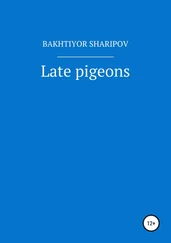Soha was stunned by their effrontery, and the effrontery of Ibrahim, who not only had taken their side in such a matter but had accepted the idea despite the still-present trauma of her husband’s unexpected death. Though Fahd was pleased at his mother’s rejection, he knew how unpleasant his Uncle Saleh could be. He still remembered the first days of mourning when his uncle would visit them constantly, stroking his head and hugging Fahd, speaking humbly and warmly with Abu Essam and shamming respect, refusing to take his coffee before the old Jordanian. He would even open a jar of dates and press Abu Essam to take one, talking about free trade in Saudi Arabia, the entry of foreign companies into the country as a positive influence on the private sector, and inquire about opportunities for trade and new projects in Jordan. Had he been laying a new trap? Was he wanting to erase his old image, his extremism and his enmity with his brother, just to get closer to Abu Essam and leave the way open to asking for Soha’s hand in marriage?
— 12 —
TWO MONTHS AFTER THE death of his brother, Saleh dusted himself down and travelled to Amman. He met Abu Essam and showered him with insincere smiles and gifts and sacks of preserved dates, packets of klija from Qaseem and date cakes which filled the back of his Toyota Land Cruiser; all that effort and ambition in order to claim Fahd’s mother, on the grounds that he alone had a duty to protect his brother’s household and two teenage children. His words were convincing, caring and compelling enough to wear away at Abu Essam’s heart and mind, or perhaps it was the money that weakened his resolve.
Saleh was known to the congregation at his small mosque in the East Riyadh neighbourhood of Quds as Abu Ayoub, after the Prophet’s most militant companion. He was fat but light on his feet with a beautifully combed beard and a thaub that was always spotlessly clean, while his shimagh sent out the scent of incense and agarwood oil wherever he went; you only had to embrace him for the smell to linger on you for days.
When he entered the mosque he would bring a censer with him and hand it to the man at end of the row of worshippers, or humbly carry it past them himself, though at the same time he was skilled at sniffing out any new congregant, greeting them attentively and tenderly and welcoming them to the mosque. Sometimes, when the prayers were done he would turn his plump frame towards the line of worshippers behind him and peer at them, muttering invocations and fingering his prayer beads as he searched for a new victim. As soon as he spotted a newcomer he would send him his charming smile or a nod of the head in greeting, leaving the worshipper doubting himself and wondering, ‘Does he know me, or is it just that I look regal and majestic?’ at which instant he was snared.
The worshippers came to his little mosque from most of the neighbouring districts of East Riyadh, from Riyan, Roda and Khaleej, and the building’s parking spots and the surrounding streets were filled with their cars. They claimed he had a wonderful voice, that his recitation brought on humility and tears, and in Ramadan they came like raindrops because he could wrap up the night prayers in fifteen minutes: anyone praying behind him who didn’t know him would lose track at the end of the Qur’an recitation as he ran on in a single breath into the exaltation of the rakaa : … forGodistheonewhoseesandhearsallthingsGodisGreat!
He attacked the prayers like a startled crow hurriedly pecking at the earth before flapping back into the sky.
Many of those who called him Abu Ayoub had no idea that his eldest son was called Yasser and not one knew the secret of his extensive contacts and influence, nor how he had convinced the country’s leading sheikhs and muftis to come and pray behind him, nor how he was able to announce that one of them would be giving an address at his humble mosque. This won him considerable renown; men such as these were the unsullied of the earth, their honesty and purity doubted by no one. So not one of the congregation could find it in themselves to take Abu Ayoub to task if he missed the odd prayer or made use of the mosque for his agarwood oil and incense business.
He put a door in the room that led to the mosque’s courtyard and after prayers he would open it to welcome his guests. Brushing the back of a worshipper’s hand and suffusing his ghatra with the fragrance from the sweet white smoke, he would make him a gift of one of the minute vials that held less than three grams of oil, while the Bangladeshi mosque guard served coffee and preserved dates.
Abu Ayoub and the Bangladeshi guard had perfected the art of stalking worshippers and running them to ground. After the free gifts Abu Ayoub would leave it until another day to show his wares to the victim, who would be forced to buy more oil or quarter of a kilo or more of fragrant agarwood sticks, either because he liked them or out of a sense of embarrassment and good manners. Guests were impressed by the fact that Abu Ayoub had taught the Bangladeshi to wear a pressed white thaub and new red ghatra and to comb his sparse beard exactly like a Saudi; he even spoke their dialect. ‘Greetings, by God! Wonderful to see you. A cup of coffee in God’s name. Taste these dates, God grant you Paradise.’
Abu Ayoub, who invited the great sheikhs to his mosque, had so spun and extended his web of contacts within the Call and Guidance Centre that he had secured a fully subsidised annual trip to India and Eastern Europe. His ostensible purpose for travel was to call non-Muslims to Islam, but it was there that he obtained large quantities of agarwood oil jars and boxes full of huge, high quality incense sticks to sell in the mosque. His motto: ‘Go on pilgrimage and sell prayer beads while you’re at it.’
He would be gone a whole month and sometimes longer if there was a wife to marry. ‘Marry women of your choice, two or three or four.’ He would mutter in front of others (and argue to himself) that he married women from East Asia, Eastern Europe and the impoverished villages of India for two reasons: to safeguard himself against the more heinous sins such as adultery and to educate the unenlightened bride in matters of the Faith — how to wash before prayer, pray and fast and the other tenets of Islam — so that she might teach other women, not to mention the man who would marry her next. His evangelising mission complete, he would return to his mosque in Quds having divorced the Indian, the Ukrainian or the Filipino.
He was careful to marry young girls because they were quicker to learn than older women, but he never claimed, as others might, that they were more passionate or that they restored his lost youth. He would instruct them how to lie back and open their thighs and repeat with him the prayer of copulation. ‘In the name of God. God keep us from Satan and keep Satan from what you have provided to us,’ he would say, as he knelt to enter them.
He would teach them the correct way to wash themselves, taking great pleasure in coaching them on how to clean the vagina then, unable to control himself, would leap on them again. Such moments presented him with no great difficulties. ‘There is no shame in the Faith,’ he would say, pointing out the sentence in the translated text then leading them to the bathroom to become conversant with the method of achieving true cleanliness in Islam, his hands playing ceaselessly with their chests’ ripe fruits like an Indian gardener assessing the yield on the mango tree.
Abu Ayoub had no qualms about taking two new wives at once. All the better to teach them simultaneously and thus transmit his knowledge to the greatest possible number of future husbands, and so that the men in these foreign countries might understand that Islam permits multiple wives, he would point out the relevant Qur’anic verse in translation. How skilfully he convinced these new converts to Islam! He would distribute blessings on these benighted individuals then return to his house in Quds to boast to his first wife, Umm Yasser, that more than 120 of these foreigners, men and women, had joined Islam at his urging.
Читать дальше












